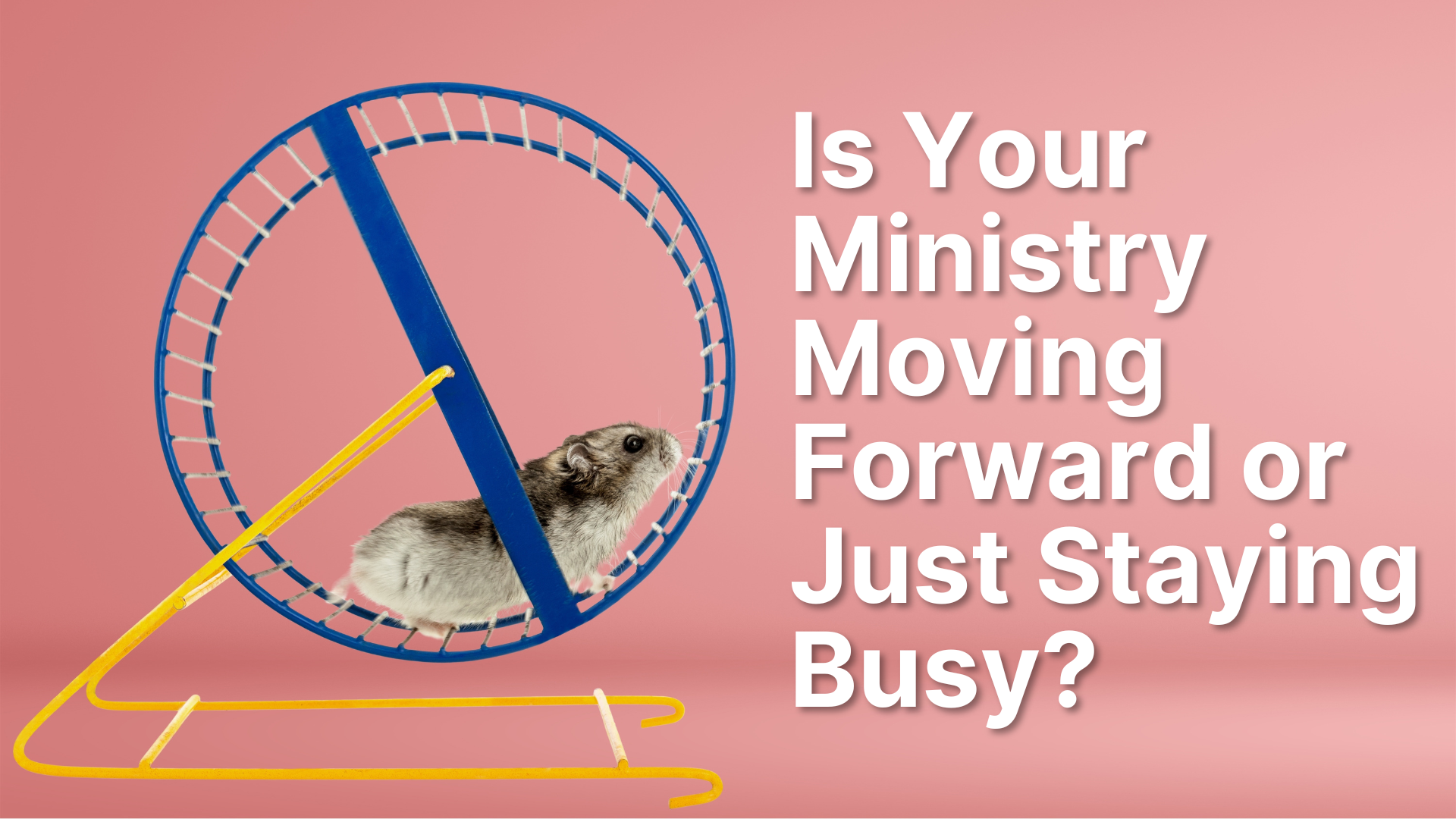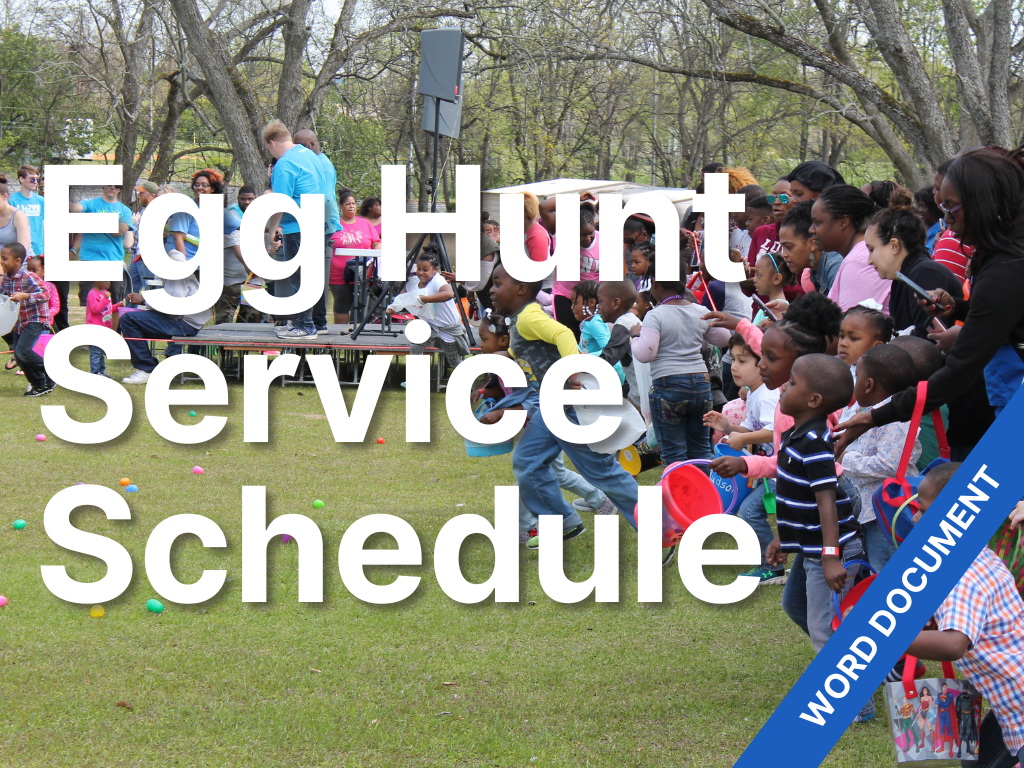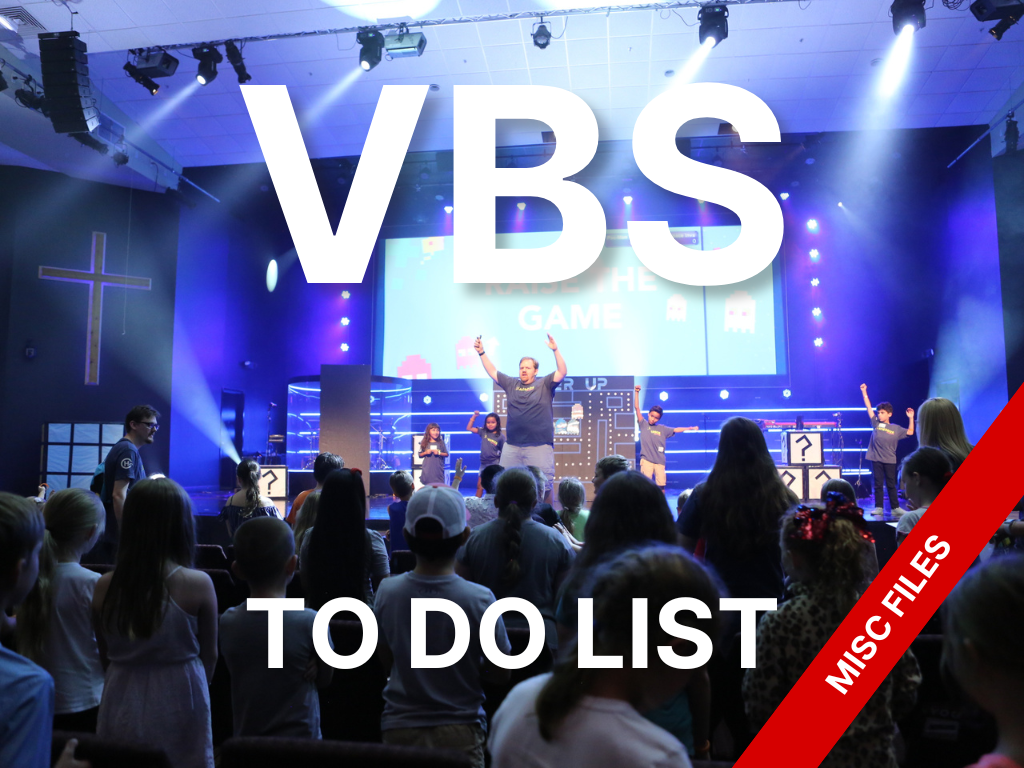Level Up Your Leadership: The 3 Stages of Delegation
Being in leadership is tough. There are so many things pulling on you, it’s hard to know where to put your focus. And if you’re in kidmin it’s no different. If you’re a children’s director or pastor, then you are a leader. And not just of children but of volunteers, parents, and staff.
No matter who you are or how productive you are, there are only so many hours in a day. Which means you can only do so much. So how can you get all the things you need to get done and still manage some kind of work/life balance?
The key is to delegate. That’s how great leaders and captains of industry get all they get done, done. They’re not in the trenches meeting customers face to face. Rather they’re leading leaders.
Now I’m not saying that as a kidmin leader you can’t be in the trenches. Far from it. Ministry is people. They must take priority. However, every now and then someone needs to stick their head up and figure out where we’re headed. That’s what a leader does.
But delegation is hard. It takes time to find good people, train them, and then trust that they’re going to do a good job. It may seem like it’s easier to just do it all yourself. And in the short run, you’re right. But if you need to take a break, go to service, or even step away from the ministry, then delegation is a must.
I’ve already written about how to effectively delegate in this post. However, there are stages to delegation. Each one gets harder than the previous. Each one requires more training and trust. But if you want to level up your leadership and leave the ministry in a better place than you found it, you need to go through each stage.
1. Delegate what you can’t do
This is the easiest stage of delegation. If you’re in kidmin, you’re probably already doing it. Do you serve in the elementary room while others lead in nursery or preschool? That’s delegation. You can’t be in two or three places at once, so you have to trust other people to lead for you.
But delegating what you can’t do is more than location. There are skills that you don’t have. For instance, in one of my kidmin rooms, the sheet rock was busted from a game gone wild. I can barely swing a hammer. There’s no way I could fix that wall with excellence. So, I found someone who can.
You can’t do everything. (I know I’ve tried.) So, make a list of things you can’t do and then find people who have the skills, passions, and availability to make it happen. Then ask them to take it off your plate. You’ll be much better off in the long run.
Quit trying to be a fish climbing a tree. You’ll never be successful.
2. What you don’t want to do
This stage is a little harder than the first. In the first stage, you couldn’t or didn’t know how to do what you’re asking people to do. You know what you want, but you don’t know how to get there. So, you trust your people to get it done.
In this stage, you have the skills to get the job done, but you hate it. You know what needs to be done, but when you’re done, you’re left with so little energy that you don’t want to do anything else.
For me, I hate crafts. That’s crazy for a kidmin leader to say, but it’s true. I blame my kindergarten teacher, but we don’t need to dig all that up now. To make up for this weakness, I find people who love to do crafts. Their scrapbooking skills are unmatched. The people at Hobby Lobby know them by name. One volunteer I had worked there.
They’re passionate about it, so I happily give it to them. They’re happy as a clam planning great crafts for Christmas, Mother’s Day, and Easter. I’m happy too, because I don’t have to find paper plates, glue, and glitter.
After you’ve made a list of things you can’t do, make another list of things you don’t want to do. I talk more about how to do that in this post. Then start to find people who love to do those things. Ask them to help you and explain what you expect. Most of them will jump in with two feet. And then you don’t have to do it anymore. Win-win
3. What you like to do
This is the hardest and most difficult stage. Mainly because you like or even love these things.
When I was in kidmin, I almost never went to service because I thought I had to teach the Bible story. I am good at it and love to do it. But I lied to myself that no one else could do it as well as me. I limited myself and the ministry.
It wasn’t until I realized I had to let go that things started to change. If you want to go to service on a regular basis, you need to train people who can manage the entire kids’ service without you.
If you want to go on vacation with peace of mind, you need to trust the people you trained and can do it almost as well, if not better, than you.
If you want the momentum you built in your ministry to continue for years to after you left, then you need to train others to take your place.
The biggest problem I’ve seen at this stage is ego. We think because we’re the best, no one else can do it as well. That may be true, but you weren’t always that good. Someone had to give you a chance. It’s time to return the favor.
So far, you’ve made two lists. Things you can’t do and things you don’t want to do. Now it’s time to make a third list. Things you like to do that you can give away. And let me tell you from experience, that list is longer than your first or second draft.
The idea is to work yourself out of job. But don’t worry, there is always more to do. You will find new things to do. You will spend time training others and empowering them for ministry. As you do, go back to the trenches from time to time to get a pulse on the ministry.
These three stages can’t be done in a month or even a year. It takes years. At my second church it took me 7. But looking back now, I know I could have done it in 5. My ego slowed me down. Don’t make the same mistake.
Move through the three stages of delegation and you’ll find your leadership, your volunteers, and your ministry thriving for years to come.













